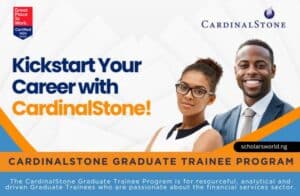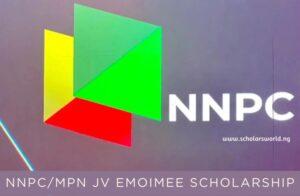Have low CGPA and repeated rejections made you give up on applying for scholarships?
When embarking on your journey to higher education, the prospect of securing scholarships often plays a crucial role in alleviating the financial burden.
Scholarships serve as invaluable resources that can significantly impact your academic pursuit. However, the realm of scholarships is often shrouded in myths that can deter students from exploring these valuable opportunities.
In this comprehensive guide, we will unravel prevalent misconceptions surrounding scholarships, shedding light on the truths behind getting that congratulatory email.
Additionally, we will delve into the challenges students encounter in maintaining grades, adapting to university life, handling peer pressure, and seizing scholarship opportunities.
Check out our various categories of scholarships
- Category: Scholarships || Undergraduate Scholarships || Postgraduate Scholarships || Masters Scholarships || PhD Scholarships
- Study Abroad || Study-In-Africa || Study-In-Asia || Study-In-Canada || Study-In-Australia
Click HERE To receive more daily scholarship updates from Scholars World.
Debunking Common Scholarship Myths: The Realities of Financial Aid
The funding available for scholarships out there are numerous. Why do think some students win as many as five scholarships?
Many of the conclusions you have had in mind about scholarships are mythical and fallacious. Let’s take a dive into these myths and set the facts straight.
Myth 1: Scholarships Are Exclusively for A-students
Truth: Contrary to common belief, winning scholarships does not require only your CGPA. It encompasses a wide array of talents, skills, and interests. These include your essays, community service, and leadership experience.
Scholarships such as MasterCard Foundation, and MTN Foundation are more interested in your passion to give back to your community than just CGPA.
Many other scholarships require you to only meet the minimum CGPA requirement of 2.5 on a scale of 5.0 to get shortlisted. They are more concerned about the your performance at interviews or aptitude test.
You don’t have to rule yourself out because of your low CGPA. Better it by working hard next semester, and improve on your extracurricular, volunteering and community service activities.
Tip: Pursue scholarships aligning with your unique strengths and passions, whether in academics, sports, writing, arts, or community engagement.
Explore more scholarship opportunities below.
Myth 2: Scholarships Are Only for Economically Disadvantaged Students
Truth: While financial need serves as a criterion for some scholarships, many are merit-based, emphasizing academic excellence, extracurricular achievements, or specific talents.
Scholarships are accessible to students from all income backgrounds.
Tip: Don’t discount scholarships based on your family’s income. Research scholarships that recognize your accomplishments and talents.
Myth 3: Scholarships Are Limited to Specific Fields of Study
Truth: Some believe scholarships are confined to STEM or business fields. In reality, scholarships span a wide range of majors, including humanities, arts, and social sciences.
While Scholarships of Julius Berger, NNPC JV, WAAW, and KPMG are limited to some courses, several other fully-funded scholarships such as MTN Foundation, Bridge, Fajim, ASMAF, and many others are open to all accredited programmes in Nigerian tertiary institutions.
Tip: Explore scholarships relevant to your chosen field while remaining open to diverse major options.
Myth 4: Scholarships Are Not Worth the Effort
Truth: Some students perceive the effort required to apply for scholarships as unjustified and tiring. They have applied to countless scholarships but have been unlucky.
Tip: You cannot afford to relent. As much as you need the funding, hundreds of thousands of others need it too. Just one email is enough to alleviate your financial burdens and open doors to unique opportunities. Keep trying!
Have you applied?
Myth 5: Scholarships Are Only for University Students
Truth: Scholarships are not exclusive to university-level education. They are available to high school students, graduate students, and individuals pursuing vocational or technical education.
The following scholarships are open to all levels of tertiary education in Nigeria.
- Nestle Nigeria Community Scholarship
- Tahara Collective Foundation Scholarship
- Ruth Titilayo educational Foundation
- plus a host of several others
Tip: Begin exploring scholarship opportunities early in your academic journey and continue throughout.
Myth 6: Scholarships Are Easily Attained
Truth: Scholarship applications often involve a competitive, time-consuming process, including essays, recommendations, and specific criteria.
READ ALSO: How to winning scholarship essays
Tip: Approach scholarship applications with dedication and meticulous attention to detail.
Myth 7: Scholarships Are Age-Restricted
Truth: Scholarships cater to students of all ages, including high school, undergraduate, graduate, and adult learners.
Tip: Explore scholarships aligned with your academic stage, regardless of your age.
Myth 8: Scholarships Are Not Merit-Based
Truth: Contrary to the belief that scholarships rely on luck or connections, many are awarded based on merit, taking into account academic achievements and leadership.
Tip: Cultivate a robust academic and extracurricular profile to enhance your chances of securing merit-based scholarships.
Myth 9: Scholarships Are One-Time Awards
Truth: Scholarships can be renewable, providing support for multiple years if criteria like GPA or community involvement are maintained.
Tip: Review scholarship guidelines for renewal conditions to secure long-term financial support.
Myth 10: Scholarships Are Easily Won
Truth: Scholarship applications often involve a competitive, time-consuming process, including essays, recommendations, and specific criteria.
Tip: Approach scholarship applications with dedication and meticulous attention to detail.
Myth11: Scholarships Are Only for Perfect Grade Achievers
Truth: While strong grades can enhance your scholarship prospects, not all scholarships necessitate a flawless GPA. Many consider factors like leadership skills, community involvement, and personal essays.
Tip: Showcase your achievements beyond academics, emphasizing leadership roles, community service, and unique experiences.
Conclusion
In conclusion, scholarships are accessible to a diverse range of students, offering opportunities to fund education and achieve academic aspirations. Dispel these myths, harness scholarship resources, navigate university life with resilience, and make informed decisions. Scholarships can be transformative, enabling you to build a brighter academic future while maintaining your grades and resisting peer pressure.























